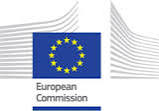Chemycal has been acquired by 3E
Learn MoreChemycal has been acquired by 3E
Learn MoreDiscover how Chemycal PRO helps you boosting your regulatory monitoring:

The European Network for Silica (NEPSI) is the first European multi-sectoral social dialogue agreement of its kind signed by the employers and employees organisations of 19 industry sectors. Since the previous reporting, a new sector has joined the Agreement, the plaster and plaster products manufacturers (Eurogypsum) representing 11.350 workers. The Agreement is always open to new signatories.
Since 2006, it aims to protect the health of employees occupationally exposed to respirable crystalline silica in these sectors, minimising such exposure by applying good practices, and increasing the knowledge and awareness about potential health effects of respirable crystalline silica as well as about good practices. NEPSI is a valuable instrument to complement regulatory measures, including those laid down in the Carcinogens and Mutagens Directive.
Now in September 2022, the signatories are launching the new “NEPSI IN ACTION Project” with the support of the Social Dialogue EC budget line. The project aims to disseminate NEPSI practical tools with a focus on the needs of SMEs and the young generation of workers. This broad awareness campaign will start with a kick-off Conference on 22 November 2022 in Brussels and dedicated seminars will take place in eight EU countries from 2022 to 2024.
Through online reporting by industrial sites of eight key performance indicators every two years, partners can monitor the state of application of the agreement. You can find the results of the latest reporting exercise in NEPSI's 2022 Summary Report.
The following infographic illustrates the coverage of NEPSI across the EU and an insight into the main indicators collected thanks to the biannual reporting. As indicated in it, 42% of the 384 000 employees covered by the NEPSI Agreement are at risk of exposure to Respirable Crystalline Silica and are followed by specific health surveillance and regular exposure monitoring.
CONTINUE READING ON ec.europa.eu
2013 © MyChemicalMonitoring. ALL Rights Reserved. About Us | Terms and Conditions